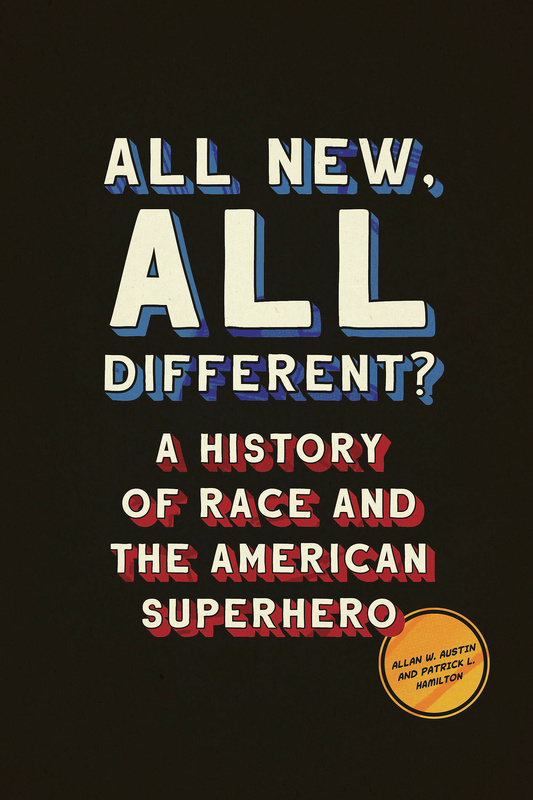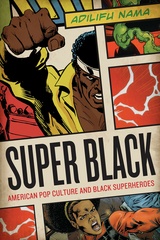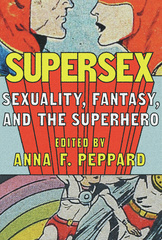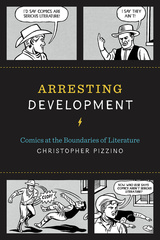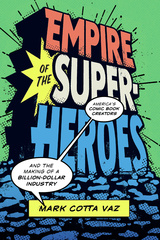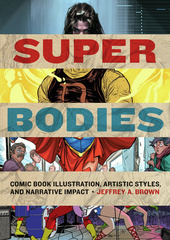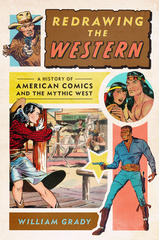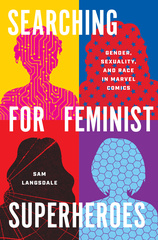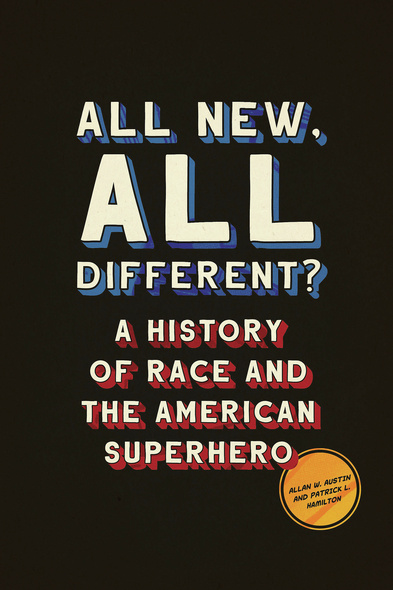
All New, All Different?
A History of Race and the American Superhero
Winner, John G. Cawelti Award for the Best Textbook/Primer, Popular Culture Association/American Culture Association, 2019
MPCA/ACA Book Award, Midwest Popular Culture Association / Midwest American Culture Association, 2020
Taking a multifaceted approach to attitudes toward race through popular culture and the American superhero, All New, All Different? explores a topic that until now has only received more discrete examination. Considering Marvel, DC, and lesser-known texts and heroes, this illuminating work charts eighty years of evolution in the portrayal of race in comics as well as in film and on television.
Beginning with World War II, the authors trace the vexed depictions in early superhero stories, considering both Asian villains and nonwhite sidekicks. While the emergence of Black Panther, Black Lightning, Luke Cage, Storm, and other heroes in the 1960s and 1970s reflected a cultural revolution, the book reveals how nonwhite superheroes nonetheless remained grounded in outdated assumptions. Multiculturalism encouraged further diversity, with 1980s superteams, the minority-run company Milestone’s new characters in the 1990s, and the arrival of Ms. Marvel, a Pakistani-American heroine, and a new Latinx Spider-Man in the 2000s. Concluding with a discussion of contemporary efforts to make both a profit and a positive impact on society, All New, All Different? enriches our understanding of the complex issues of racial representation in American popular culture.
An invaluable resource for textual examples of the handling of race in American superhero comics and for considering the kinds of characters and stories featuring racial minorities that were common to the different eras it covers.
The authors’ consideration of race [in All New, All Different?] is holistic, framing the genre over time and providing the reader with a means to understand the superhero archetype and to consider the limitation of racial liberalism in the United States...All New, All Different? offers an important narrative about the gradations around race in superhero comics and the broader society.
[All New, All Different?] is an incredibly useful text...an inside look at the ever-changing landscape of comics, and audiences will be enlightened by how attitudes have developed right along with it.
[Austin and Hamilton's] contribution is more than just compiling a damning narrative. The authors read their material through the history of race in America and alongside a slew of recent scholarship on comics…[All New, All Different?] offers useful insights and ways to read nonwhite superhero tales from the 1960s onward...the scope of the work is impressive.
All New, All Different? discusses not only mainstream superhero comics from Marvel and DC but also lesser-known texts over a long time span. In addition to examining African American superheroes, it also critically engages with Asian/Asian American, Native American, and Latinx characters. Its comprehensive coverage will make a meaningful contribution to the growing field of comic studies.
Allan W. Austin is a professor of history at Misericordia University. He is the author of two previous books, Quaker Brotherhood: Interracial Activism and the American Friends Service Committee, 1917–1950 and From Concentration Camp to Campus: Japanese American Students and World War II. In addition, he served as co-editor of Asian American History and Culture: An Encyclopedia and Space and Time: Essays on Visions of History in Science Fiction and Fantasy Television.
Patrick L. Hamilton is an associate professor of English at Misericordia University. He is the author of Of Space and Mind: Cognitive Mappings of Contemporary Chicano/a Fiction. He has also published on Los Bros Hernandez, The Walking Dead, and Westworld.
- List of Illustrations
- Acknowledgments
- Introduction: Into the “Gutters”
- 1. “World’s Finest”? The Wartime Superhero and Race, 1941–1945
- 2. Struggling for Social Relevance: DC, Marvel, and the Cold War, 1945–1965
- 3. “We’re All Brothers!”: The Ideal of Liberal Brotherhood in the 1960s and 1970s
- 4. Guess Who’s Coming to Save You? The Rise of the Ethnic Superhero in the 1960s and 1970s
- 5. “Something for Everyone”: The Superteam in the Age of Multiculturalism, 1975–1996
- 6. Replacement Heroes and the Quest for Inclusion, 1985–2011
- 7. Something Old, Something New: Heroes Reborn and Reimagined, 1990–2015
- Coda: Born Again (and Again and Again . . . and Again and Again . . .)
- Notes
- Bibliography
- Index

